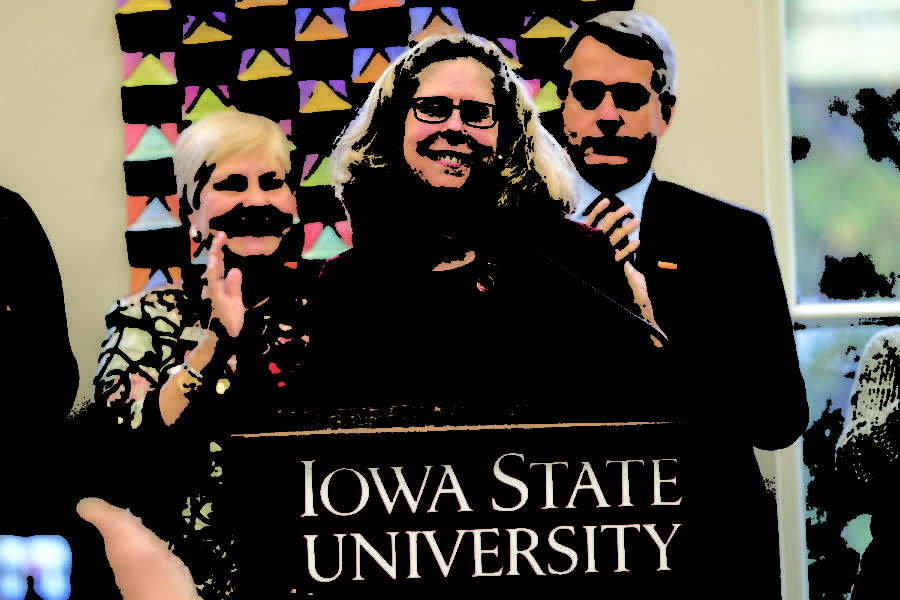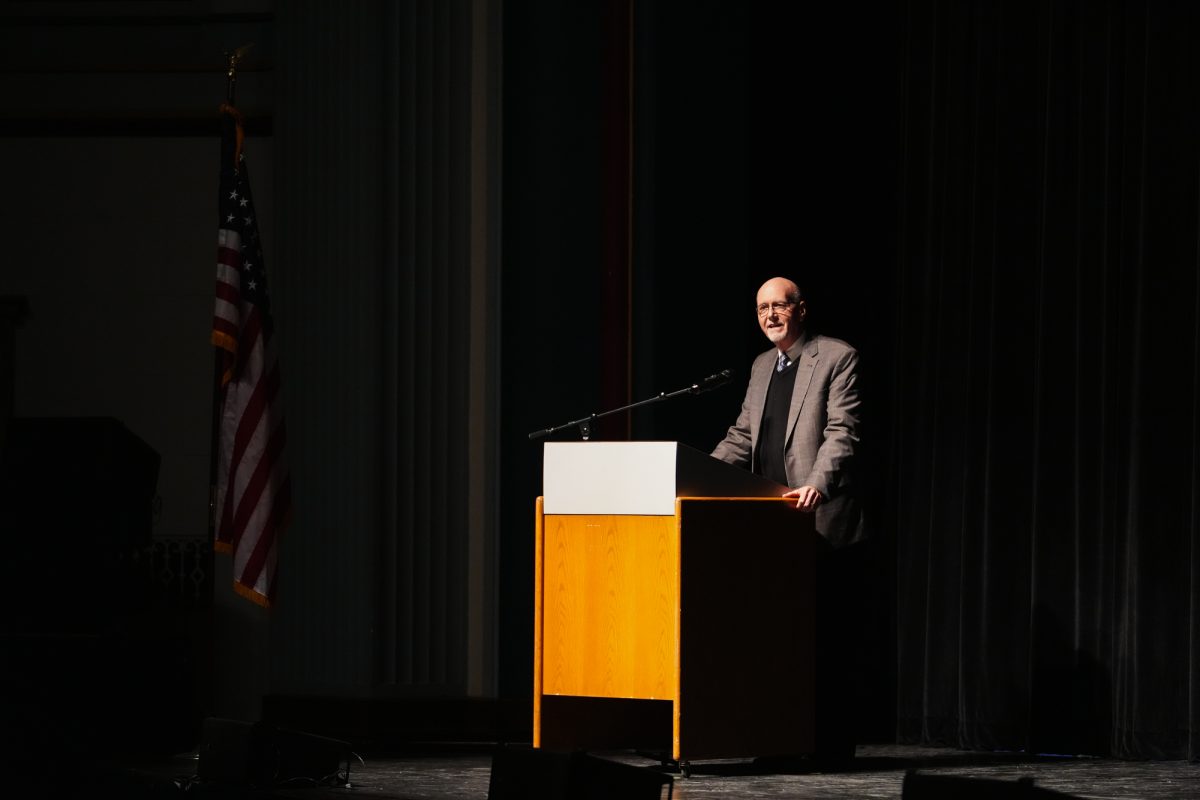- App Content
- App Content / News
- News
- News / Politics And Administration
- News / Politics And Administration / Campus
- Politics
- Politics / Us Representatives
Wintersteen addresses tax reform bill effects at Iowa State
Chris Jorgensen/Iowa State Daily
Wendy Wintersteen was named the next President of Iowa State University on Monday. She was unanimously chosen by the board of regents. Wintersteen is the first female to hold the position of President at Iowa State.
December 6, 2017
Wendy Wintersteen sent out a statement Dec. 1 in regards to the current Republican tax reform plan being debated in congress.
The House of Representatives and the Senate have both passed their versions of The Tax Cuts and Jobs Act, and will go to conference committee for the two branches to settle differences between the different versions.
The senate bill attempts to repeal The Affordable Care Act’s individual mandate while the house does not, the senate bill lowers the top tax bracket of their seven brackets while the house does not for its four brackets, to name a few.
According to a Quinnipiac University poll released last Thursday, 53 percent of U.S. voters disapprove of the current Republican tax reform plan, and 64 percent say that it favors the wealthy.
Wintersteen sent out a statement on Dec. 1 addressing what she described as harmful provisions of the bill in an “effort to mitigate some of its harmful provisions.”
In the statement she goes on to say that while she appreciates Congress’s attempt at improving the tax code, she was immediately concerned by it upon it’s release in early November. She listed multiple concerns in the statement, and how it could negatively impact higher learning.
Her most prominent concern stated was that the removal of section 117d would remove tax benefits for graduate students receiving tuition waivers. Currently graduate students receive waivers on their tuition in return for their research and teaching for the university. If the Tax Cuts and Jobs Act passes, these waivers will become taxable.
According to Wintersteen’s statement, 2,456 Iowa State Students are estimated to have an increase in taxable income of $8,000 a year should the bill pass.
The new GOP plan could be detrimental to the graduate school, and Director of student Financial Aid Roberta Johnson says that this could steer students away from attending grad school. More information regarding the impact on the graduate school can be found here.
“[If the bill passes,] It would be a huge disincentive for students to go to grad school,” Johnson said.
She also said she felt a level of concern regarding “the minimizing of incentives for charitable giving” which will negatively impact research universities.
“We will continue to advocate for removal of any provision that negatively impacts students from pursuing higher education, increases the cost for students and their families, and jeopardizes our campuses’ ability to operate cost-effectively,” Wintersteen said.
Wendy Wintersteen’s concerns regarding the bill is met also by Interim President Ben Allen, President of the University of Iowa Bruce Harreld, and President of the University of Iowa Mark Nook, who all wrote a letter to congressional leadership regarding the bill and speaking against its potential harmful effects on higher learning.
The statement from Wendy Wintersteen is below.
|
Given Congress’ current action on tax reform legislation, specifically H.R. 1, the Tax Cuts and Jobs Act, I wanted to provide you with an update on this important legislation and our efforts to mitigate some of its harmful provisions.
Whereas, we appreciate Congress’ efforts to strengthen and simplify the tax code, the legislation, as currently proposed, could have potential adverse implications to our students, stakeholders, and fiscal operations.
After the House introduced its version of the bill in early November, we were immediately concerned by a number of the provisions that would implicate higher education and most importantly, the students we serve. One of our chief concerns is the proposal to eliminate many student tax benefits, specifically section 117(d) which currently allows graduate students to receive tuition waivers without tax consequences. If this section was eliminated as proposed in the House bill, we project that 2,456 ISU students would see their taxable income increase by an average of $8,000 annually.
We joined our Regent university colleagues to advocate strongly against the elimination of section 117(d). Dr. Ben Allen, as Interim President, sent a letter Nov. 14, co-signed by Presidents Harreld and Nook, to the entire Iowa Congressional delegation sharing our concerns. I strongly supported this action. In coordination with Director of Federal Relations Sophia Magill, I have continued to convey our concerns with members of Congress, specifically Senator Charles Grassley who is a senior member of the Senate Finance Committee. We are pleased that Sen. Grassley heard our concerns and the provision to eliminate section 117(d) was not included in the Senate bill.
Currently the Senate is considering its version of H.R. 1. There are numerous other provisions in H.R. 1 that will harm research universities and our economic competitiveness, such as minimizing the incentives for charitable giving and advance refunding bonds becoming taxable. We will continue to advocate for removal of any provision that negatively impacts students from pursuing higher education, increases the cost for students and their families, and jeopardizes our campuses’ ability to operate cost-effectively.
|
Editor’s note: This article has been updated due to errors. Wendy Wintersteen did not say that she opposes the whole bill, but that she has concerns regarding certain parts of the bill. The Daily regrets this error.






